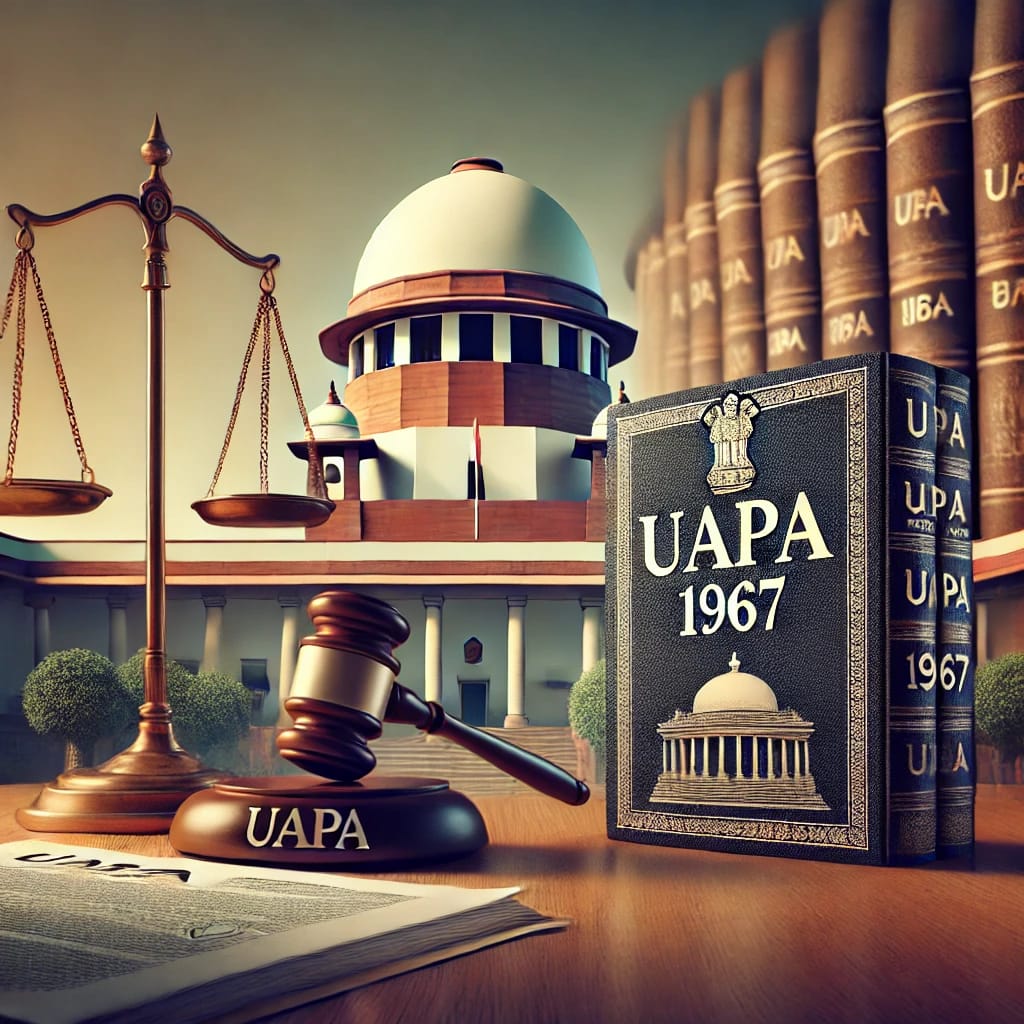Rakia Imran
On 4th February, 2025, a Supreme Court Bench comprising Chief Justice of India, Sanjiv Khanna, alongside Justice PV Sanjay Kumar and Justice KV Viswanathan, granted High Courts across the country to proceed with hearing challenges against the amendments to the Unlawful Activities (Prevention) Act (UAPA), 1967.
Amidst a backlog of cases dating back to 2019, the Supreme Court took on a set of petitions that specifically dispute the constitutional soundness of several UAPA provisions. Emphasizing the challenges of the judicial process, Chief Justice Khanna noted the practical difficulties inherent in dealing with cases of such comprehensive scope and critical significance at the Supreme Court, and stated, “ A lot of problems arise. Sometimes issues are left by your side and sometimes by the other side; then we have to refer to a larger bench and it becomes an issue. We will have it before the High Court”.
One of the petitions, submitted by Sajal Awasthi in collaboration with the NGO Association for Protection of Civil Rights, challenges the constitutional validity of Sections 35 and 36 of the UAPA. The petition asserts that the amended provisions grant the government the power to designate any person as a terrorist, which could lead to enduring stigma and a violation of the fundamental rights enshrined in Articles 14, 19, and 21 of the Constitution.
This announcement was made in the context of the Court’s decision to issue a clarifying order directing High Courts to immediately consider pending petitions regarding the UAPA amendments, a move that is perceived as an attempt to decentralize judicial power and fully utilize the High Courts’ proficiency in handling such important matters.
Case Name: Sajal Awasthi v. Union of India
Case Number: W.P.(C) No. 1076/2019 and Connected Matters
Bench: CJI Sanjiv Khanna and Justices Sanjay Kumar and KV Viswanathan

